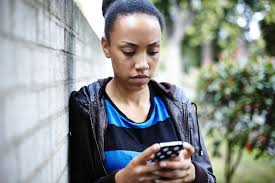- More than 3,000 Childline counselling sessions for peer sexual abuse
- A confused landscape with young people struggling to understand what has happened to them and some teachers needing help on how to respond
Thousands of children and teenagers are seeking help from Childline after being sexually abused by another young person.
The latest figures from the NSPCC service reveal that last year there were 3,004 counselling sessions with young people who had experienced sexual abuse by a friend, boyfriend or girlfriend, an ex-partner or another young person. (1)
111 of these counselling sessions were with young people contacting Childline from Wales. (2)
Older children are vulnerable to suffering the abuse in different places, including school, at home, at parties and online, while younger ones are more likely to experience it as one-off incident at primary school.
Some teachers who witness peer sexual abuse have told us, via the NSPCC Helpline, they need more support in how to deal with these situations.
NSPCC Cymru / Wales was part of an expert panel which produced a report on thefuture of the sex and education curriculum in Wales, published earlier this year.
The charity believes age-appropriate sexuality and relationships education is a vital part of laying the foundations for a child’s development and making that a statutory part of the new school curriculum – with professionally trained SRE school leads – should be a priority for Welsh Government.
The NSPCC is also calling for the government to produce a prevention of child sexual abuse strategy in Wales.
One girl aged 16 said: “When I was younger I was round at a friend’s house and he asked me to come and look at his room. I can’t really remember what happened after that, I know that he made me pull down my pants and that something happened. I’ve tried to block the memory, but I struggle sleeping sometimes because I get night terrors.”
An NSPCC report – ‘Is this sexual abuse?’– published today highlights how victims felt confused about what had happened to them, with younger children in particular struggling to understand if they had actually been sexually abused.
Some children and teenagers that recognised something was wrong still expressed a reluctance to tell anybody due to the fear of being blamed or bullied, leaving them vulnerable to lasting mental health issues and post-traumatic stress disorder.
Head of NSPCC Cymru / Wales, Des Mannion, said:
“There is something particularly shocking and disturbing about a child being sexually abused by another young person.
“Unfortunately we have to wake up to the fact that this is happening across Wales and the UK many times over each year, with both victim and perpetrator at risk of suffering lasting damage.
“Sustained action from Welsh Government is a key part of tackling this problem and we hope new, mandatory sexuality and relationships education – coupled with a prevention of child sexual abuse strategy – are now prioritised.”
To help children and teenagers who have been sexually abused the NSPCC delivers ‘Letting the Future In’ from its service centres across the UK.
The charity sees boys and girls aged 4 to 17 in special play therapy rooms where they do things like messy play, writing, storytelling and art to help express feelings that the young person can’t put into words.
The NSPCC also offers an online learning course – Managing sexualised behaviour in primary schools – which enables anyone who works with children in primary schools to feel confident about recognising, assessing and managing incidents of sexualised behaviour.
Any child worried about peer sexual abuse can call Childline on 0800 11 11. Any adult who is concerned about a child can call the NSPCC Helpline on 0808 800 5000.
Help keep news FREE for our readers
Supporting your local community newspaper/online news outlet is crucial now more than ever. If you believe in independent journalism, then consider making a valuable contribution by making a one-time or monthly donation. We operate in rural areas where providing unbiased news can be challenging. Read More About Supporting The West Wales Chronicle


























